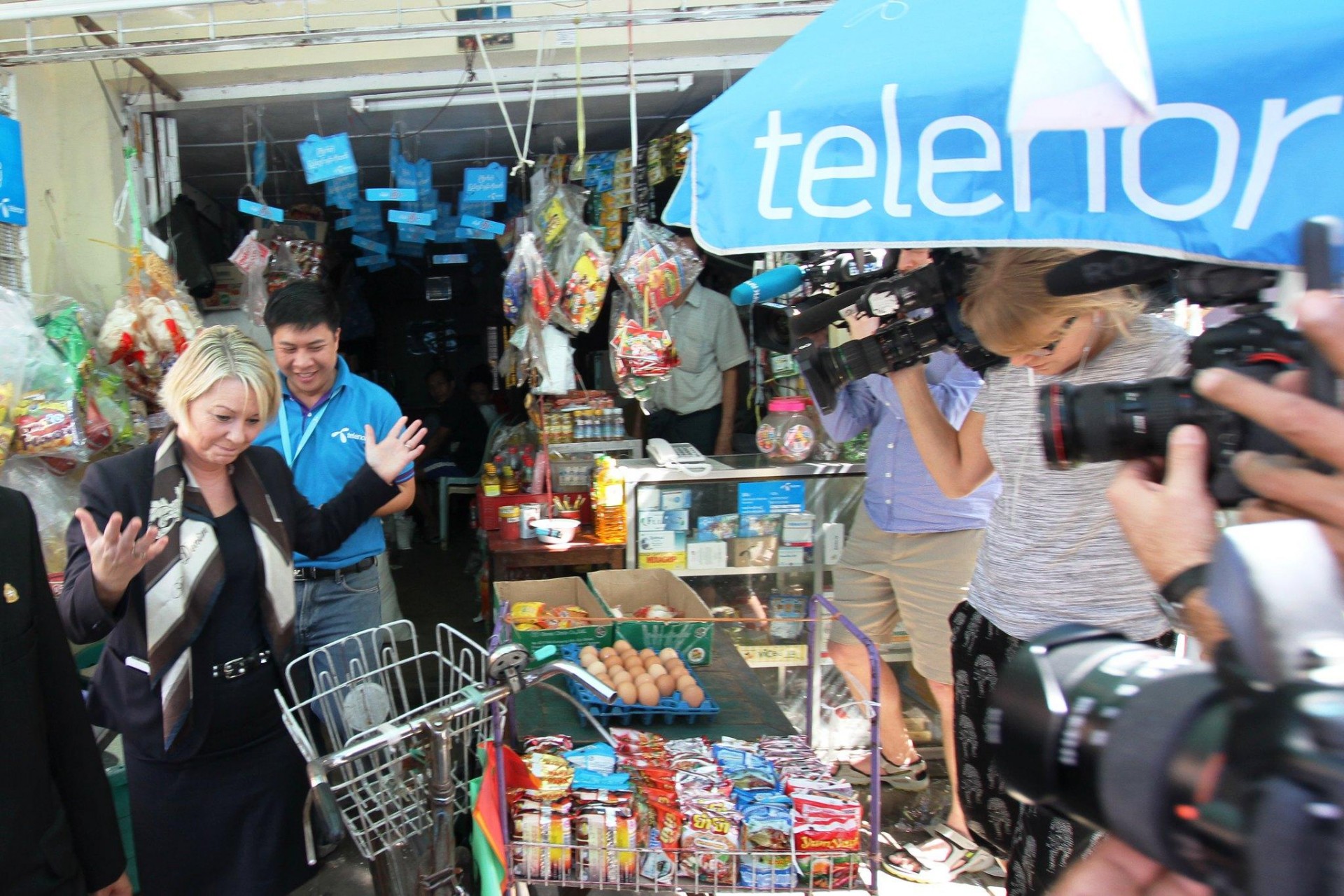Telenor’s end of operations in Myanmar
Telenor’s operations in Myanmar started in 2014, and the investments were in May 2021 written off as a company loss. The later announcement of the disengagement cited concerns for employee safety, regulatory conditions and business practices as the basis for the decision. In a statement in September, Telenor also evoked the demand from the regime to active sanctions-covered intercept equipment as a reason for their disengagement. According to the company, it was no longer possible to abide by the OECD Guidelines, keep their employees safe and operate in Myanmar at the same time.
Telenor has 18 million registered phone plans in Myanmar as one out of four providers, and their clients now risk that their data will be shared with the authorities. The junta is known to shy no means when pursuing dissidents and are constantly tightening their grip on the pro-democracy movement. Myanmar’s civil society has therefore expressed their disappointment in Telenor’s decision, as the company has until this crisis been perceived as constructive and active in their dialogue with civil society and as the most reliable and responsible mobile operator.
The complaint to the OECD contact point
The complaint to the Norwegian National Contact Point has been submitted by the Centre for Research on Multinational Corporations (SOMO) on behalf of 474 civil society organisations based in Myanmar. They are claiming that the sale is not in line with the standards of responsible disengagement as set forth by the OECD Guidelines for Multinational Enterprises. In the complaint three elements are set forth; the failure to carry out appropriate risk-based due diligence, lack of meaningful engagement with relevant stakeholders considering the sale and finally the lack of transparency in its decision to disengage.
The case is a principally important one, as it is unique in the OECD system so far. There has, as far as ForUM is aware, not been a complaint submitted previously related to a company’s responsibility relating to disengagement in a country.
Myanmar’s civil society fear the control of user data by the regime
Myanmar’s civil society fear that the sale to the M1 group will lead to more sensitive personal data being shared with the authorities, as the M1 Group have a troublesome record of collaboration with repressive regimes. The group is part of the UN list of companies with economic relations to the military regime in Myanmar.
«In Myanmar, our life continues to be at risk from the military junta’s terrorism and their increasing surveillance», states Ko Ye who is a human rights activist and part of the complaint, in an article on SOMO’s website. «We remain shocked that Telenor is rushing to sell their Myanmar business to such unscrupulous buyers without sufficient human rights due diligence, transparency or stakeholder engagement.» he continues.
What happens next?
At present, the sale is not finalised as the authorities in Myanmar need to approve it. However, the pro-democracy movement claim such a sale would be illegitimate as it would be approved by the military junta which is not recognised by the people.
One option for Telenor could be to freeze their activity while carrying out a more orderly process of sale, where civil society could be included. This would allow for proper disengagement, and the opportunity to find a buyer that adheres to the principles of responsible business.
The National Contact Point for OECD has finished its initial assessment of the complaint and found that it merits further examination. At this point a procedure will begin where the parties are invited to a dialogue aiming to find a solution, which Telenor has expressed that it will take part in. Should the parties not reach a mutual agreement, the contact point has no mandate to impose sanctions on Telenor. They can, however, conclude that Telenor has breached the OECD Guidelines which would entail reputational damage for Telenor.
ForUM’s opinion
ForUM supports the civil society in Myanmar and their struggle against the repressive military junta. We are concerned that the sale of Telenor’s business in Myanmar will add to an already dire situation for human rights in the country. We therefore support the demand that Telenor put an end to the sale and enter into dialogue with local civil society.
Further, as the Norwegian state is the largest share owner in Telenor, it must also act responsibly in the matter. We encourage the Minister of Commerce to account for the dialogue with Telenor.
As difficult as the situation is for Telenor, it is much worse for the millions of people who suffer at the hands of a brutal military regime. To ensure their fundamental rights is at the core of responsible business, and what Telenor must strive to achieve.
For more information, please contact:

